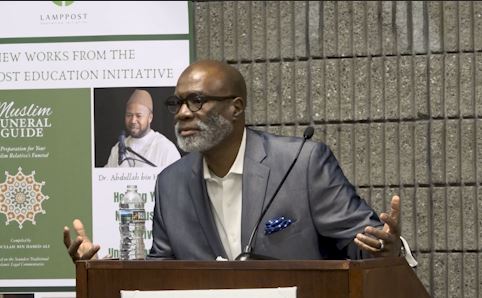FREE DOWNLOAD
Ijma Between Use & Misuse
Sign up for our email list and receive a free copy of this landmark work from Dr. Abdullah bin Hamid Ali.
Ijma’ is an often misunderstood yet essential concept in Islamic jurisprudence. Dr. Ali’s work provides a foundational understanding of the critical aspect of Islamic Law.
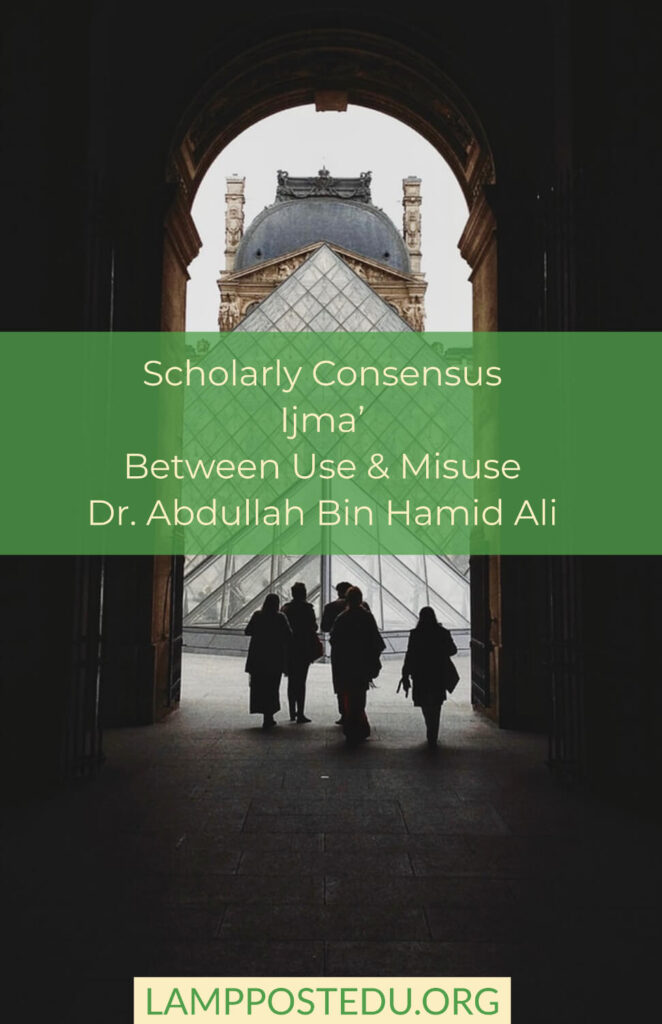
Get The FREE Download
Just tell us where to send this. You will also receive updates on new articles, videos, and special events at Lamppost.
Author: Dr. Abdullah bin Hamid Ali
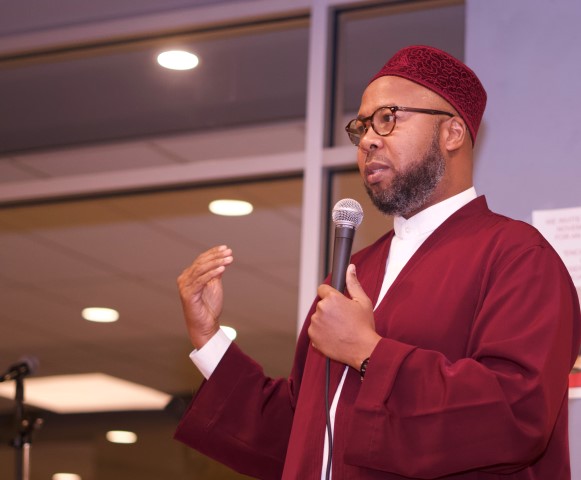
He holds a Ph.D. in Cultural and Historical Studies in Religion (2016) and an M.A. in Ethics and Social Theory (2012) from the Graduate Theological Union. He obtained his B.A. (ijaza ‘ulya) in Islamic Law (Shariah) from the prestigious Al-Qarawiyin University of Fes, Morocco in 2001. He served as full time Islamic chaplain at the State Correctional Institute of Chester, PA from 2002-2007, and is the founding director of the Lamppost Education Initiative. He currently serves as a assistant professor of Islamic law and Prophetic Tradition at Zaytuna College in Berkeley, California His research interests include the interconnection between law and identity formation, comparative Islamic law, and Islam’s role in the modern world.

Dr. Abdullah Ali is to be commended for a provocative, timely
and critical examination of Ijma’. This work asks serious questions
and demands serious, well-considered answers. Hopefully, it will be
the start of a deep and fruitful conversation that will enrich all
involved.
Imam Zaid Shakir
Zaytuna College
A masterly exposition of ijma‘, its definitions, role in Islamic
jurisprudence and perhaps most importantly its limitations. A well argued and timely reminder of the necessity for Muslim scholars today to revisit the process of ideological standardization that too often established a criterion for sound belief that, although useful within a particular socio/political context, has become antithetical to the greater good and unity of the Muslim community. An important study that calls our attention to the value of and growing need to preserve the ideological and philosophical diversity that has exemplified Islamic thought from its earliest times
Dr. Kenneth Abdel-Hadi Honerkamp
Professor of Arabic, Islamic texts, Shar'iah (Islamic Law), North African Sufism, University of Georgia , Athens
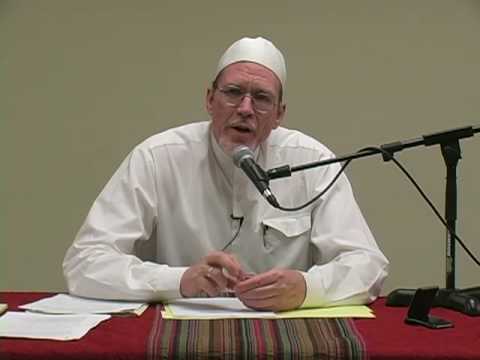
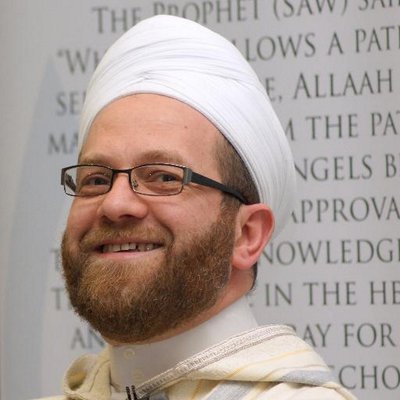
Knowledge of the legal foundations (usul) is the keystone of the jurist and student of law. And it is the methodology of research employed by scholars in legislative deliberations, because it guards against error and aimless chatter.
I have reviewed what our brother, Shaykh Abdullah bin Hamid Ali—may Allah grant him success—has written about this matter of foundational legal import, and I have found him
to have probed its depths and mastered its every nuance; a thing that bears testimony to his broad grasp and mastery of the legal sciences.
May Allah, the Exalted, grant him success in the service of the Sunna and those who uphold it; and may He transfer benefit through him and his knowledge to people everywhere
Shaykh Muhammad bin Yahya al-Ninowy,
Scholar and Imam of Al-Madina Masjid, Norcross, GA
To be critical is one thing; to be critically responsible is another.
The future lies with critically responsible engagement. Shaykh
Abdullah is critically responsible.
Dr. Sherman Jackson
King Faisal Chair in Islamic Thought and Culture and Professor of Religion and American Studies and Ethnicity
